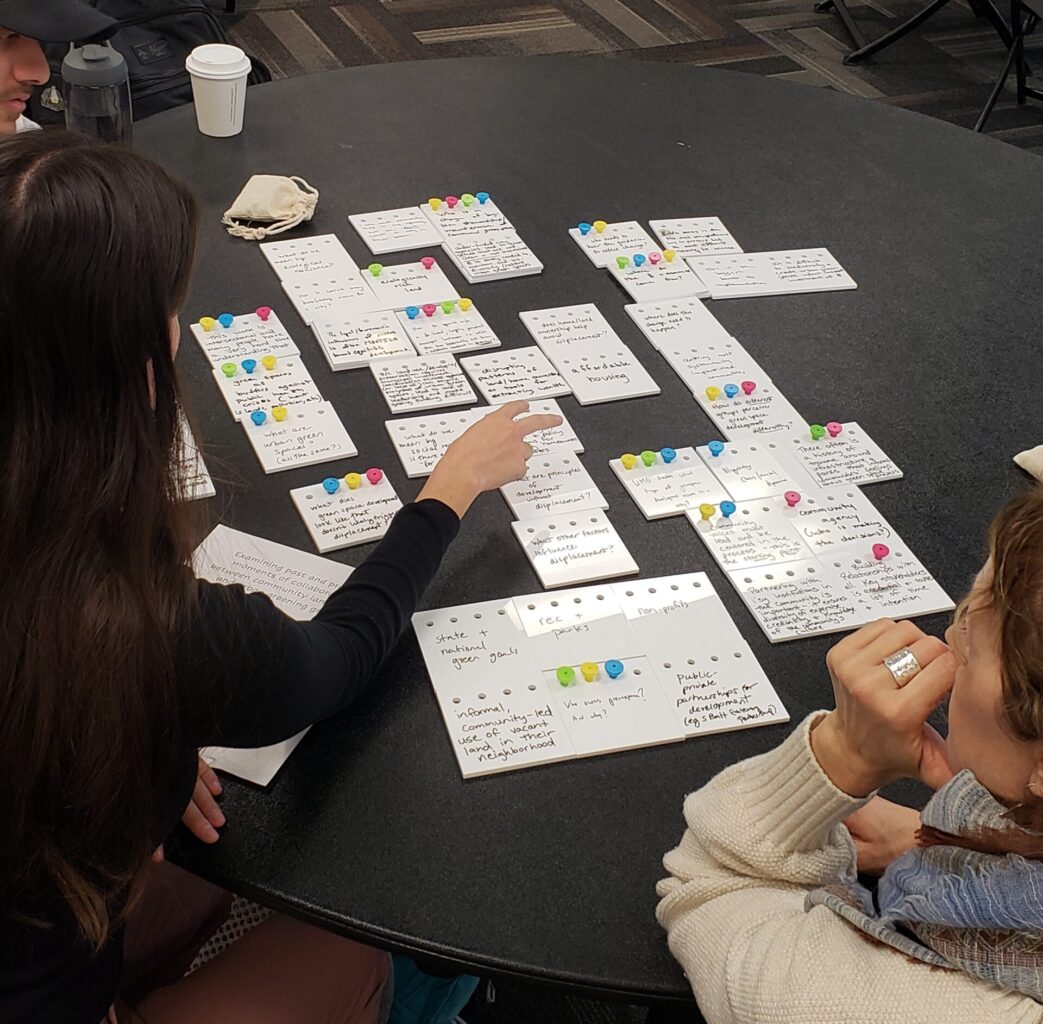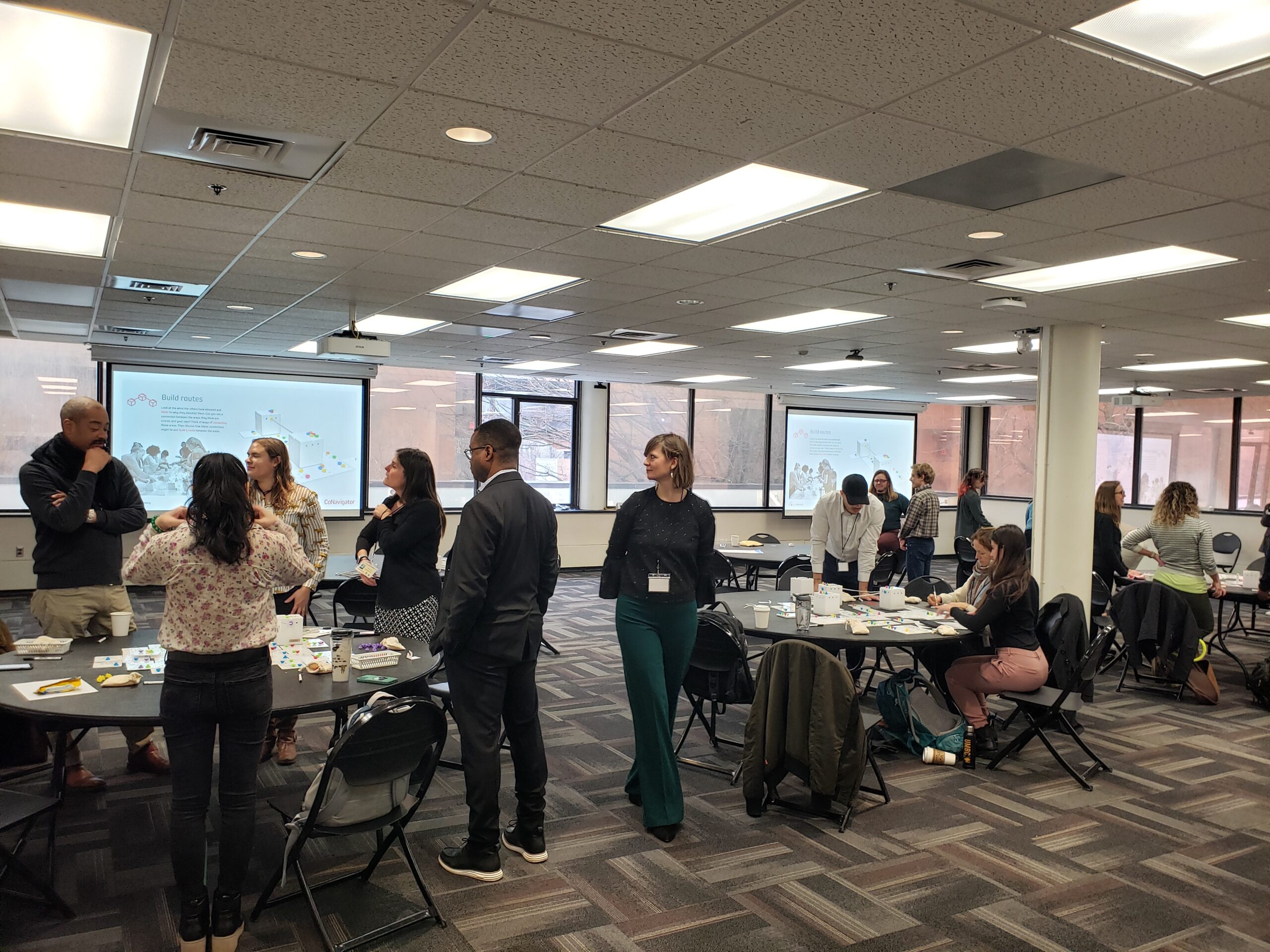UMBC’s Interdisciplinary Consortium for Applied Research in the Environment (ICARE) program, a cohort-based master’s program focused on local environmental research, held its first annual ICARE CoNavigator Day on Friday, February 23, in the University Center Ballroom. The all-day event consisted of research planning activities for ICARE trainees, poster sessions highlighting the trainees’ research, and a keynote address given by Jalonne White-Newsome, senior director for environmental justice in the White House Council for Environmental Quality. The Maryland deputy and assistant secretaries of the environment and representatives from the League of Conservation Voters also attended.
“ICARE is a unique training model in which master’s students in the environmental sciences and engineering are co-mentored by UMBC faculty mentors, professional scientists or engineers, and community leaders. This day brought together all the trainees and their mentors to conceptualize their research through CoNavigator and present their research in well-attended poster sessions,” shares Tamra Mendelson, ICARE director and professor of biological sciences.
CoNavigator is a unique three-dimensional concept mapping protocol the ICARE trainees and their thesis committees used to brainstorm. The structured format encouraged creative thinking about their projects’ goals and implementation.
Danish researchers created CoNavigator in 2015, and “UMBC was a big part of the genesis of this,” shared Katrine Lindvig, one of CoNavigator’s founders who facilitated the ICARE session. UMBC was one of the first institutions to apply the unique protocol, Lindvig said.
White-Newsome said in her keynote that addressing environmental problems “takes multiple perspectives; it takes creativity; it takes ensuring that those folks who are most impacted are part of and given the space to implement and co-solve and create solutions that will benefit us all.”
She also encouraged the ICARE trainees: “To read about the questions you’re asking, and the way you’re going about answering them— your work is so important.”

Tags: Biology, CAHSS, CBEE, CNMS, COEIT, GES, ICARE, Public Policy

